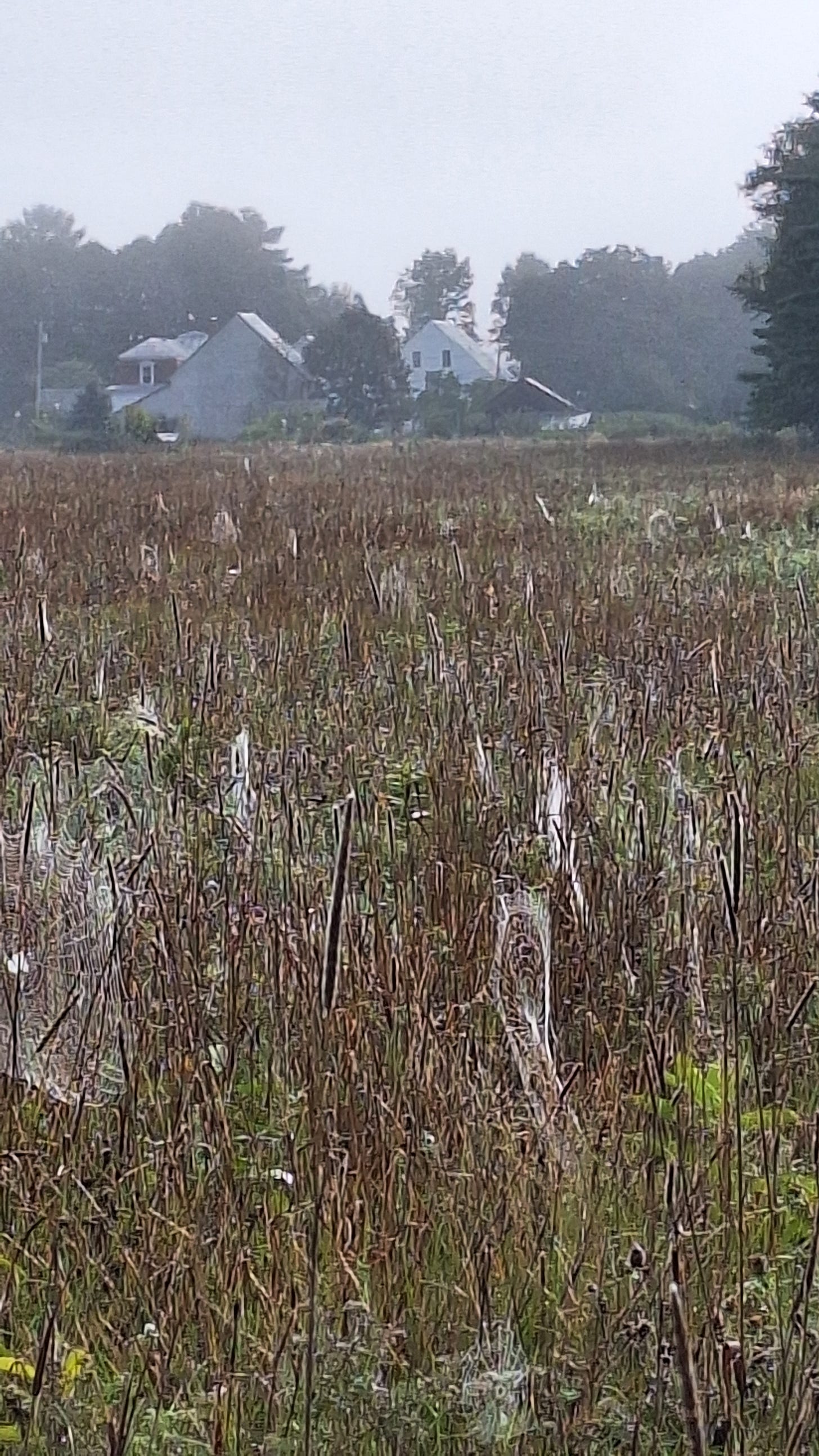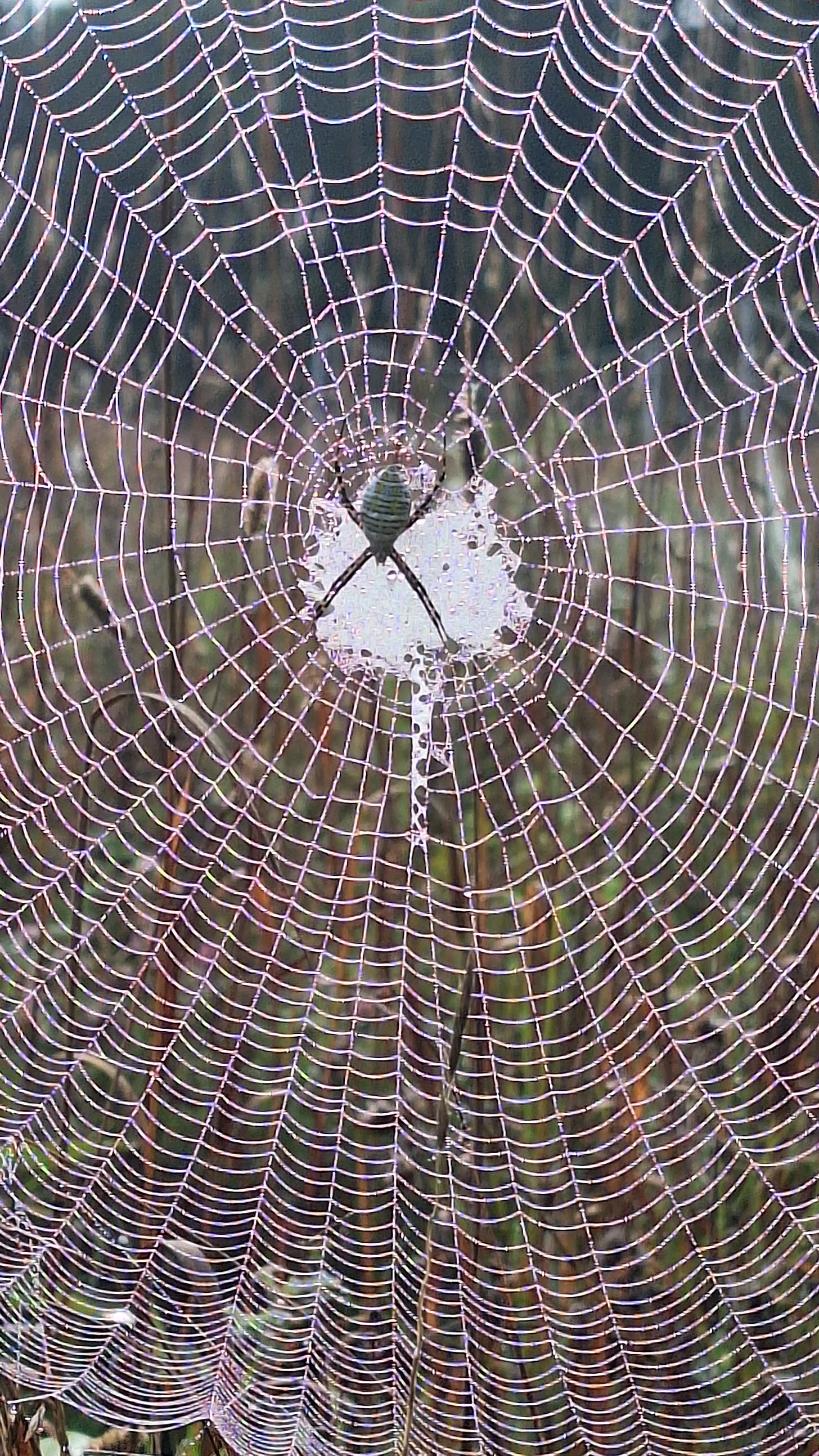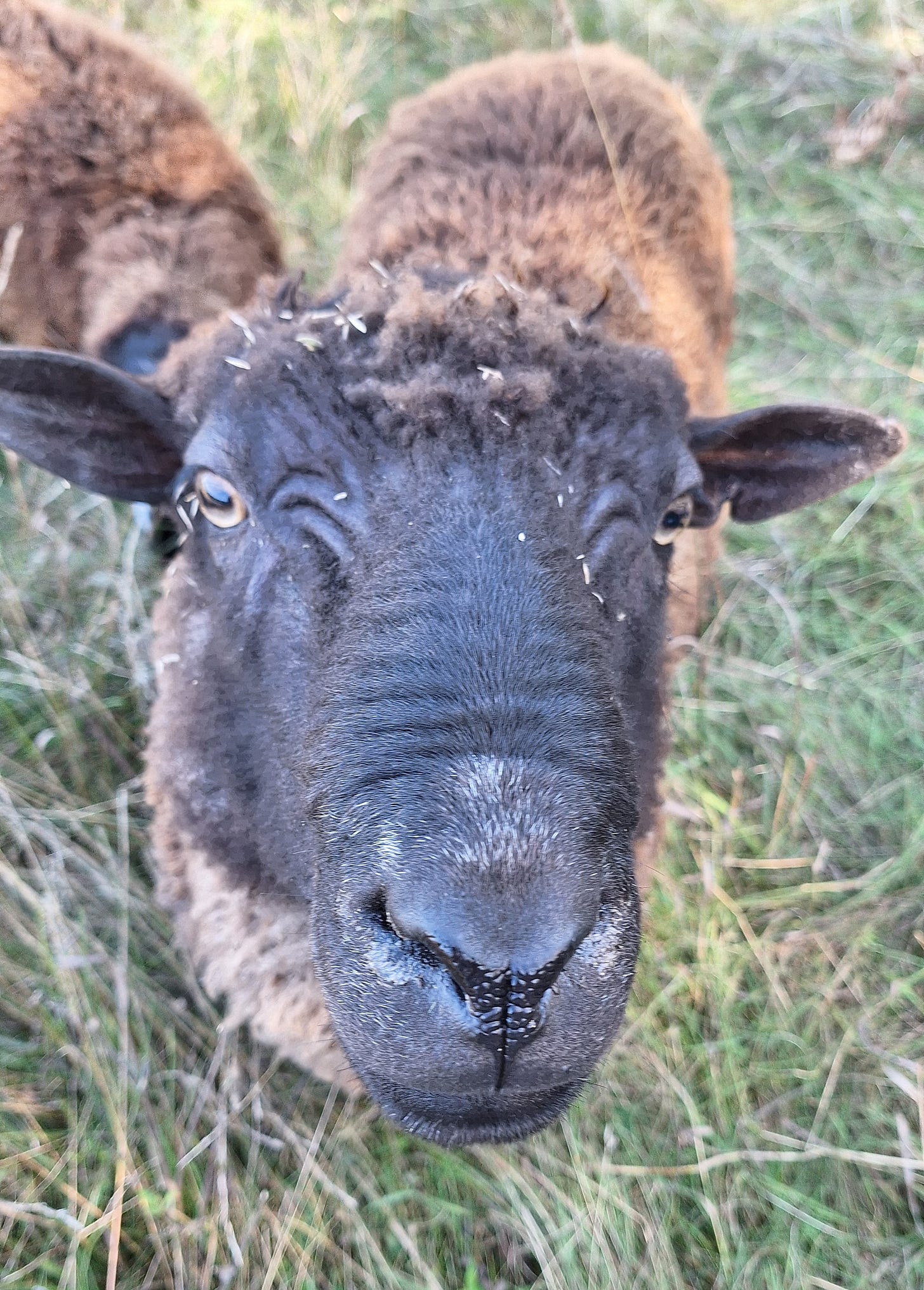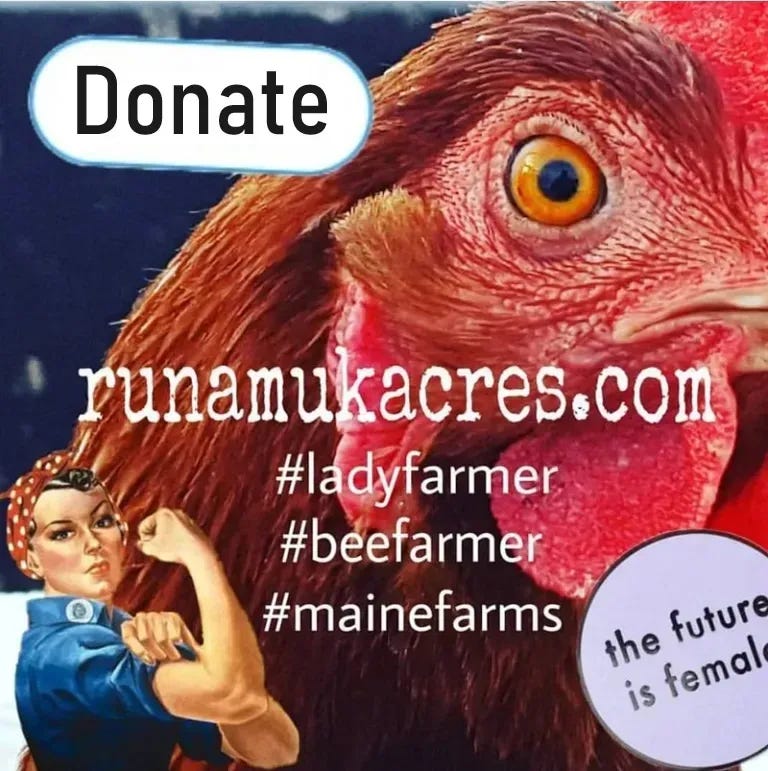Driving up through the middle of the 10-acre pasture in the soft light of early morning, there was no denying that Spider Season had arrived. Hundreds of dewy webs littered the grasses and forbes so that every 1-3 feet lay another masterpiece, it’s artist sitting boldly at the center. Up close and personal, spiders give even me the shudders. Yet, from the car it is a marvel—a thing of beauty. To see insect-life on this field so abundant is an indicator to this conservationist that my efforts are not in vain. Join me at Runamuk Acres for the latest updates from the farm!
Welcome to the latest Updates From the Farm! If you are new here, I invite you to check out my About page to learn what this is, who I am and why I am doing this. Or just dive right in! At “Runamuk Acres” you’ll find the recantings of one lady-farmer and tree-hugging activist from the western mountains of Maine. #foodieswanted

During Spider Season, I refuse to move the sheep in the mornings.
I appreciate spiders for the role they serve in our ecosystems, but I much prefer them at a distance. All bets are off if they chance to enter my “bubble”. There’s no controling the girlie shrieking or the arm-flailing that ensues when they get too near.
It’s the legs, lol. Too many, too long and too creepy.
Even still, seeing the field in this light only serves to reaffirm that my efforts are not in vain. It’s not called the Runamuk Acres Conservation Farm for nothing, you know.
Woman With a Mission
I’m a woman with a mission to promote beneficial insects and soil microbial life, Runamuk Acres is a 53-acre ecological reserve amid the western mountains of Maine. Bent on increasing awareness and appreciation for the smallest members of our community, we’ve employed methods of regenerative agriculture (also known as conservation agriculture) to improve soils on this farm.
These sheep are on the front-lines of climate change, fighting every day against the loss of biodiversity sweeping the planet. Using rotational grazing, Runamuk’s sheep are amending the soil and stimulating the growth of existing plant-life. Not only does this activity help to sequester carbon in the soil, it benefits a multitude of creatures both directly and indirectly.
Directly, the field supports myriad insect populations, snakes, frogs and toads, rodents and birds residing therein.
Indirectly, we’re also supporting wildlife who visit the field seeking food: wild turkeys, foxes, coyotes, deer, eagles, hawks and numerous other bird species.
For 14 years now, I’ve worked toward this. Since Runamuk’s very conception, the goal was always to first buy a farm—and then transform it into a conservation center. I wanted to create a place where pollinators and other beneficial insects could thrive. A place where people could come to learn more about the keystone organisms that make our very existence possible. A place where they could connect with nature in a way they may not be able to do at home—and I’ve done that.

Spider Season
Even as much as Spider Season makes me shudder, seeing the field so adorned with glistening webs fills my heart with pride and satisfaction. It’s the same in the late afternoon, when the day has warmed and the air above the field is thick with all manner of flies, mosquitoes, butterflies. Dragonflies zip back and forth, while birds alight on fence-posts. They drop down into the twin ruts of the dirt road running up through the center of the field, pouncing on some grasshopper, cricket or caterpillar. Then they flit away again to eat their catch amid the safety and sanctity of the forest.
Bountiful insect populations mean that it’s working.
Slowly, but surely, with every shuffle of fences and rotation of sheep, we are improving the habitat on this field. All of the blood, sweat and tears, the pulled muscles, bruises, stress and anxiety—is paying off.
While things at the Runamuk Acres Conservation Farm may be changing a bit—with my new position as Head Cook at the local elementary school—my dedication and commitment to wildlife conservation remains steadfast. In fact, it is that unwavering ambition which compells me to leave the farm at all.
That and the tremendous love I have for this property and the work I do here. It’s not easy for this farmer to step away from her farm, yet this is what Runamuk needs of it’s farmer right now. And so I go.
In spite of the angst created by having to go at all, I’m having a good time in the kitchen at the Kingfield Elementary School. The kids—all Pre-K through 4th grades—are too stinkin’ cute and I’m just eating it up. In my next post, I’ll share details about how that whole transition is going, as well as some other news from this small Maine farm. Check back soon for the latest farm-update!
Sending love and light to you and yours.
Your friendly neighborhood farmer,
Sam
*****NOTE - Due to the demands of my new routine, audio for posts will be recorded and released the day after the text version is released.*****
Thank you for following along with the story of this lady-farmer! It is truly a privilege to live this life serving my family and community, and protecting wildlife through agricultural conservation. Check back soon for more updates from the farm, and be sure to follow @RunamukAcres on Instagram or Facebook!





I have a spider stick that I wave ahead of me as I walk! 😂 when I shift the cows in the morning. It (the stick) drives the dogs nuts though - they are like - for goodness sake - throw the damn stick already!!
There are some spiders in my yard that amaze me. They will start on the lowest limb of some of my biggest oaks, then go to another smaller tree limb that has to be over 10 feet away then back to the ground, making a very large triangle. They will weave for days filling in the middle. If I see them in time, I will dodge them while mowing, mostly because if you catch one it will get web over your whole body. You also stop the mower while doing "Kungfu" moves.